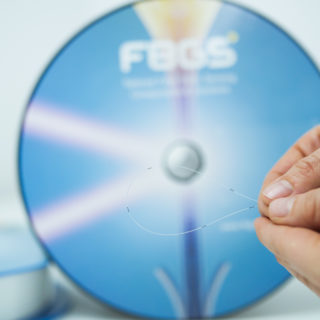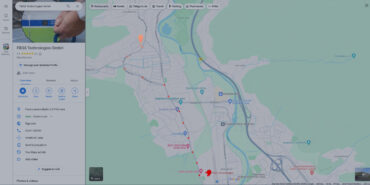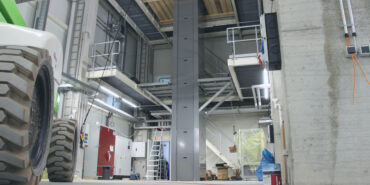A couple of presentations at the 2015 OFS24 in Brazil highlight FBGS’s DTG® sensors in conjunction with new interrogation. They shed light on how these sensors can jointly advance the overall performance of a quasi-distributed sensing system for a wide range of key current and future applications. The following are the highlights of each article:
1. High DTG® Sensor Count
- FBGS demonstrates a high spatial-density quasi-distributed sensing system that can accommodate over 1000 DTG® sensors over a single optical fiber of more than 2 km long.
- The individual FBG sensors are of low reflectivity (0.1%), which helps stack a higher number of sensors in a more cost-effective approach that takes advantage of the established automated draw-tower process.
- A high-speed and high-precision interrogation platform introduced by Insight Photonic Solutions combines WDM/TDM schemes (dubbed as wavelength-to-time-domain reflectometry (WTDR)), which overcomes the status quo limitation of WDM and TDM measurement systems.
- The new approach opens up the door for the next generation applications (oil & gas, structural monitoring, perimeter monitoring, transportation networks, civil engineering, geotextile, etc.) that demand fast interrogation of high numbers of sensing points over long sensing lengths..
For more details please click on the following link:
Very High Sensor-Density Multiplexing using a Wavelength-to-Time Domain Reflectometry Approach based on a Rapidly Swept Akinetic-Laser
2. Decoupling of T & ε Cross-sensitivity with a Single PM-DTG® Optical Fiber
- At the heart of the innovation is the fabrication of a special polarization-maintaining (PM) optical fiber inscribed with fiber Bragg grating (FBG) sensors using the draw-tower (PM-DTG®s).
- The induced birefringence of this fiber is generating two narrowly-separated wavelength peaks (~ 0.5 nm) with orthogonal polarizations for each PM-DTG. In response to an external physical stimuli (T and/or ε), both peaks respond with different responsivities to T & ε. However, the peaks separation responds more predominately by T variations. Analytically, one can extract the decoupled signals and simultaneously monitor them independently.
- A new option for an interrogation scheme based on I4-platform (no moving parts) by FAZ Technology demonstrated a high reliability and high-accuracy approach in decoupling the inherited cross-sensitivity in measuring temperature (T) and strain (ε).
- The platform provides higher stability performance (< 50 fm), which translates to a temperature stability of +/- 0.2 °C. For the strain measurements, the orthogonal components show almost identical sensitivities of 1.176 pm/με and 1.191 pm/με.
- The exhibited performance will have a high impact for any application in distributed temperature measurement, where the optical fiber is under strain. Examples range from small size flexible minimally-invasive medical devices (catheters, needles, etc.) to remote monitoring of reactors and various industrial processing facilities.
For more details, please click on the following link:
Stretching the Limits for the Decoupling of Strain and Temperature with FBG based sensors














